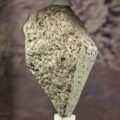A new study looking into potential treatments for alcohol use disorder has shown that psilocybin, the active compound in psychedelic mushrooms, can reduce alcohol cravings in alcohol addicted lab rats. Specifically, the research team conducting the study found that the “magic” compound within the mushrooms was able to restore the body’s natural expression of a particular chemical receptor linked to alcohol craving and impaired executive (decision making) control. One restored, this receptor helped the addicted rats seek less alcohol and display increased executive control.
BACKGROUND: LIMITED TREATMENTS FOR ALCOHOL USE DISORDER
In recent years, science is increasingly looking at compounds like psilocybin that have high efficacy, (meaning they definitely cause a biochemical effect) but were also previously unexplored due to legal status. Earlier this year, The Debrief reported on promising results using psilocybin combined with music therapy to treat depression, and another study noting the dramatic increase in neural connections spurned by mushrooms.
As far as using mushrooms to treat alcohol use disorder, the press release announcing the study results states, “while low doses of psychedelic drugs have emerged as a possible treatment, few preclinical trials have been conducted.” The study also adds that “although there are currently 4 approved drugs to treat alcohol use disorder, all have limited effectiveness.”
This particular dichotomy led the research team and its lead author Marcus Meinhardt from the Institute of Psychopharmacology, Central Institute of Mental Health at the University of Heidelberg in Germany, to see if psilocybin could indeed be used to limit alcohol cravings in a more effective way than those currently limited medications.
ANALYSIS: ALCOHOL DEPENDENT MICE SHOW REDUCED CRAVINGS
Published in the November 17th edition of the journal Science, the study authors first laid out their method for addicting rats to alcohol, as well as the symptoms of alcohol use disorder displayed by the animals before they were administered any treatment.
“We used an established model of alcohol dependence, in which rats receive chronic intermittent exposure (CIE) to alcohol vapor,” they explain. “This leads to intoxication levels similar to those seen in clinical alcohol addiction and induces long-lasting behavioral and pronounced molecular changes in the brain.”
After seven weeks of receiving the alcohol vapor, the rats displayed increased levels of self-administration of alcohol, as well as an increased motivation to obtain alcohol. This regular exposure also resulted in significant withdrawal symptoms once the vapor was removed compared to a control group that received only air.
Once sufficiently addicted, the rats were then given the psilocybin. According to the press release, this meant administering “either a 1 milligram per kilogram or a 2.5 milligram per kilogram dose of psilocybin to alcohol-dependent rats.” As Meinhardt and his team had hoped, the magic mushroom compound did the trick, with the release noting that “both doses were similarly successful in reducing relapses compared with the control.”
OUTLOOK: PROMISING RESULTS AND MORE TO LEARN
The research team’s press release readily concedes that the actual molecular mechanisms that cause the executive dysfunction in alcohol use disorder are not well understood, and that more research needs to be done before moving toward full blown human trials. However, the team also points out that along with providing other researchers a new target for future drugs hoping to reduce alcohol cravings, they also identified a particular biomarker that they believe could be used in any potential human studies to help determine who could benefit from this type of treatment.
Follow and connect with author Christopher Plain on Twitter: @plain_fiction
